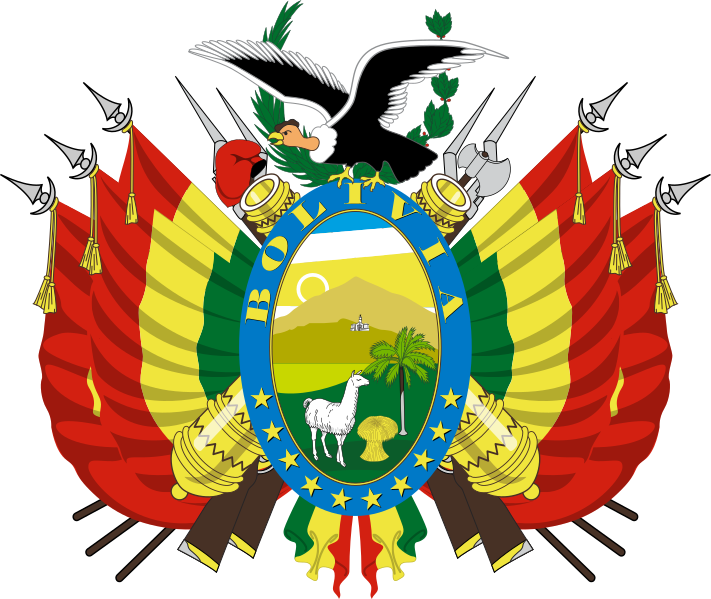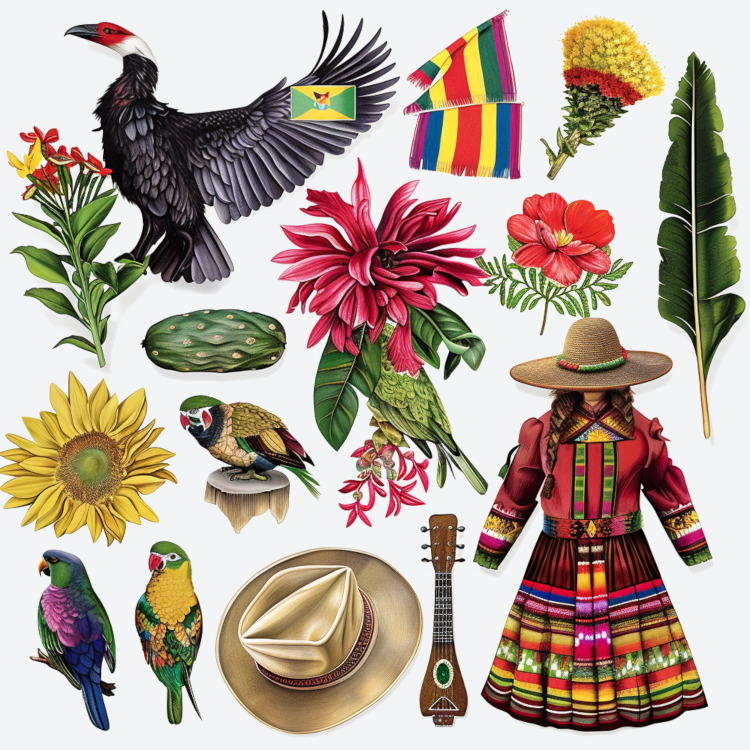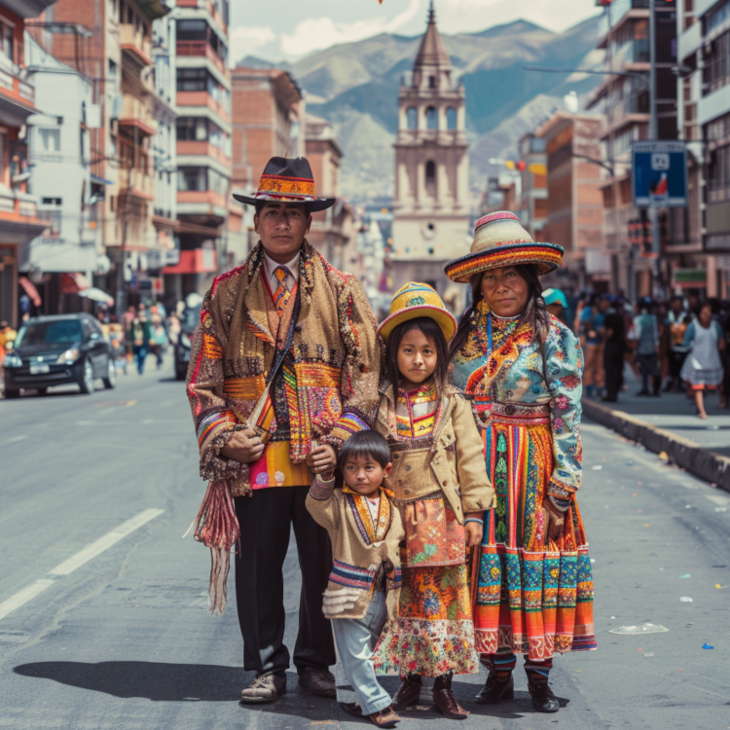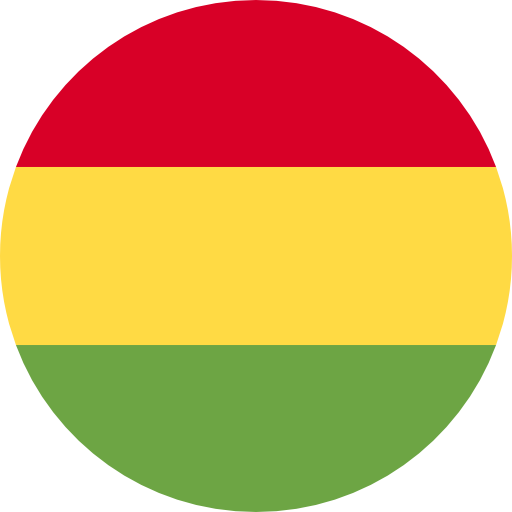About BO

Official Name
The Plurinational State of Bolivia (Estado Plurinacional de Bolivia in Spanish).
Location
Bolivia is a landlocked country located in central South America. It is bordered by Brazil to the north and east, Paraguay to the southeast, Argentina to the south, Chile to the southwest, and Peru to the northwest.
Capital
The constitutional capital of Bolivia is Sucre, where the country's judiciary is located. However, the seat of government and executive capital is La Paz, the highest administrative capital in the world.
Population
Bolivia has a population of approximately 11.7 million people.
Languages
The official languages of Bolivia are Spanish and Quechua, with other indigenous languages also recognized, such as Aymara, Guarani, and many others.
Ethnic Diversity
Bolivia is one of the most ethnically diverse countries in South America, with a significant indigenous population. The majority of Bolivians are of mixed indigenous and European descent, while indigenous groups such as Quechua and Aymara are also prominent.
Geography
Bolivia is known for its diverse geography, including the Andes Mountains, the Amazon Rainforest, and the Altiplano plateau. It is also home to Lake Titicaca, the highest navigable lake in the world.
Economy
Bolivia has a mixed economy, with key sectors including agriculture, mining, natural gas, and manufacturing. The country is one of the largest producers of tin and has significant reserves of natural gas, which are major contributors to its economy.
Currency
The currency of Bolivia is the Bolivian Boliviano (BOB).
Government
Bolivia is a democratic republic with a president serving as both the head of state and head of government. The country's government is divided into executive, legislative, and judicial branches.
Culture
Bolivia has a rich cultural heritage influenced by its indigenous, Spanish, and mestizo populations. Traditional Andean customs and festivals are celebrated alongside Catholic religious festivals. Bolivia's music, dance, and cuisine are diverse and reflect its multicultural society.

National Items of Bolivia
Andean Condor
The Andean Condor (Vultur gryphus) is the national bird of Bolivia. Known for its impressive wingspan and soaring flight, the condor symbolizes freedom and the natural beauty of Bolivia's highland regions.
Kantuta Flower
The Kantuta (Cantua buxifolia) is one of Bolivia's national flowers. This beautiful flower, native to the Andean region, represents the country's rich biodiversity and is also a symbol of Incan heritage.
Patujú Flower
The Patujú (Heliconia rostrata) is another national flower of Bolivia. Known for its bright red and yellow bracts, it symbolizes the eastern lowland regions of the country and its vibrant natural landscapes.
Quina (Cinchona)
The Quina tree (Cinchona officinalis) is the national tree of Bolivia. Known for its medicinal properties, particularly as a source of quinine used to treat malaria, it symbolizes the country's rich natural resources and traditional knowledge.
Llama
The llama is a significant animal in Bolivia, especially in the highland regions. It represents the traditional Andean way of life and is an important part of the country's agricultural and cultural heritage.
Charango
The charango is a traditional Andean stringed instrument, similar to a small guitar. It symbolizes Bolivia's rich musical heritage and is widely used in traditional folk music.
Cholita Dress
The traditional dress of the cholitas, indigenous women of Bolivia, includes a bowler hat, pollera (pleated skirt), and a shawl. It represents the cultural identity and pride of Bolivia's indigenous peoples.
Wiphala Flag
The Wiphala is a square flag with a seven-color checkerboard pattern, representing the indigenous peoples of the Andes. It symbolizes the diversity and unity of Bolivia's multi-ethnic society.

The national anthem of Bolivia is called "Himno Nacional de Bolivia" in Spanish. Here are the lyrics in Spanish and their English translation:
¡Bolivianos, el hado propicio
coronó nuestros votos y anhelo;
es ya libre, ya libre este suelo,
ya cesó su servil condición!
Al estruendo marcial que ayer fuera
y al clamor de la guerra horroroso,
siguen hoy, en contraste armonioso,
dulces himnos de paz y de unión.
CORO
De la patria, el alto nombre
en glorioso esplendor conservemos
y en sus aras juramos morir,
antes que ver el país sumido
en eterno oprobio y servidumbre.
¡A cuya voz acuden, presto,
los libres del mundo al combate,
y hacen de la faz de la tierra
una patria de hermanos vivir!
Libertad, libertad, libertad
a los ecos que aclaman, seguid!
Libertad, libertad, libertad
es la sílaba que el aura dilata,
y en su expansión y con voz triunfal
la América toda repite: Libertad!
CORO
De la patria, el alto nombre
en glorioso esplendor conservemos
y en sus aras juramos morir,
antes que ver el país sumido
en eterno oprobio y servidumbre.
Bolivians, the propitious fate
crowned our vows and longings;
This land is now free, free at last,
the servile condition has ceased!
To the martial uproar of yesterday
and the horrific clamor of war,
today follow, in harmonious contrast,
sweet hymns of peace and unity.
CHORUS
Let us maintain in glorious splendor
the lofty name of the homeland,
and swear to die on its altars,
before seeing our country sunk
in eternal shame and servitude.
To whose voice swiftly come
the free people of the world to combat,
and make the face of the earth
a homeland of living brothers!
Liberty, liberty, liberty,
to the echoes that acclaim, follow!
Liberty, liberty, liberty,
is the syllable that the breeze spreads,
and in its expansion and with a triumphant voice
all of America repeats: Liberty!
CHORUS
Let us maintain in glorious splendor
the lofty name of the homeland,
and swear to die on its altars,
before seeing our country sunk
in eternal shame and servitude.


